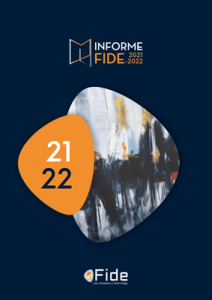On the second day, the Congress will start with a keynote speaker Rt Hon Sir John Mummery, formerly a member of the Court of Appeal of England and Wales on the legal profession in England and Wales, followed by several panel discussions on nationalism and populism at the national level, nationalism, populism, and the economy, Constitutional, legal and governance questions in the context of nationalism, and finally a panel discussion on refugees, nationalism, and externalization policies.
09.15-09.30 am: Tea / Coffee The Bastion
9.30-10.00: Keynote Session: The legal profession in England and Wales; how Gray’s Inn fits into the legal landscape; why and how Gray’s Inn values international collaboration – Keynote speaker- Rt Hon Sir John Mummery, formerly a member of the Court of Appeal of England and Wales. Bencher of Gray’s Inn (member of the governing council).
10.00-10.55 am: Panel discussion: Working Group: Nationalism and populism at the national level
- Leader: Juan Martínez Calvo, Partner in Simmons & Simmons, Madrid office, whose practice is focused on the energy and infrastructure sectors, advising funds, developers, contractors, lenders, and public bodies.
- Constructive friend: Marie-Pierre Rey, Director of the Sorbonne research unit ‘Identities, international relations, and civilizations of Europe’, Professor of Modern History at the University Panthéon-Sorbonne, and specialist of Russian-European relations.
- Panelists:
- Stefania Baroncelli, Tenured full professor, Public and European Union Law, Free University of Bozen/Bolzano
- Joaquín Echánove Orbea, Partner in the DLA Piper’s Corporate and M&A department at the Madrid office
- Maria Garrote, Associate Professor of Constitutional Law at the Faculty of Law, Complutense University of Madrid
- Professor Richard H. Pildes, Professor of Constitutional Law, New York University. Member of the American Academy of Arts and Sciences and the American Law Institute
.
11.00-11.30 am: Coffee break – The Bastion
11.30-12.25 pm: Panel discussion: Working Group: Nationalism, populism, and the economy (1)
- Leader: Jorge Padilla, Senior Managing Director and Head of Compass Lexecon EMEA.
- Constructive friend: Frédéric Jenny, Emeritus Professor, Economics Department, ESSEC Business School. Co-Director of the European Center for Law and Economics
.
Sub-group 1: Globalisation and Populism.
- Leader: Laurent Manderieux, Professor of Intellectual Property Law at L. Bocconi University of Milan, Italy. Member of Fide’s Academic Council
- Constructive friend: Jorge Padilla
- Panelists:
- Enrique Chamorro, Partner in the Department of M&A and Private Equity at DLA Piper
- Elisabetta Marafioti, Professor of Management at University of Milano–Bicocca
.
12.30-1.30 pm: Lunchtime – Dining Hall
1.40-2.45 pm: Panel discussion: Working Group: Nationalism, populism, and the economy. (2)
- Leader: Jorge Padilla, Senior Managing Director and Head of Compass Lexecon EMEA.
- Constructive friend: Frédéric Jenny, Emeritus Professor, Economics Department, ESSEC Business School. Co-Director of the European Center for Law and Economics
.
Sub-group 2: The Future of the EU Project
- Leader: Juan Espinosa, Advisor to the Ministry of Finance and Civil Service of Spain
- Constructive friend: Frédéric Jenny
- Panelists:
- Maria Pilar Canedo, Member of the Board of the Spanish National Commission of the Markets and of the Competition
- Sonsoles Centeno Huerta, Partner of the European Union Law Department at Pérez-Llorca
- Miguel de la Mano, Executive Vice President at Compass Lexecon based in Brussels
- Martín Martínez Navarro, Référendaire (law clerk) at the General Court of the European Union since 2014
.
3.00-3.30 pm: Coffee Break – The Bastion
3.30-4.25 pm: Panel discussion: Working Group: Nationalism, populism, and the economy. (3)
Subgroup 3: Populism and Inequality
- Leader: Joe Perkins, Senior Vice President and Head of Research at Compass Lexecon based in London.
- Constructive friend: Jorge Padilla
- Panelists:
- Cecilia García-Peñalosa, Professor of Economics at Aix-Marseille University and senior research fellow at the Centre National de la Recherche Scientifique (CNRS).
- Eva M. Gutiérrez, Lead Financial Economist in the Latin American and Caribbean Region of the World Bank
- Francisco de la Torre, Tax inspector
- Julio Veloso, Partner of Broseta since 2009, Head of the Private Equity, Funds and M&A area
.
4.30-5.45 pm: Panel discussion: Working Group: Constitutional, legal and governance questions in the context of nationalism
- Leader: Ramón Palacín, Managing Partner, EY Abogados. Specialist in tax law, especially in international taxation
- Constructive friend: Derrick Wyatt QC, Emeritus Professor of Law at the Faculty of Law, University of Oxford, Emeritus Fellow of St Edmund Hall, Oxford and formerly a member of Brick Court Chambers, London
- Panelists:
- Juan S. Mora-Sanguinetti, Senior Economist at the Bank of Spain-Eurosystem. Vice President of ENATIC. Member of Fide’s Academic Council
.
5.50-6.45 pm: Panel discussion: Challenges to the EU: refugee externalization policies: nationalism and humanitarianism.
- Moderator: Fernando Irurzun Montoro, Partner in charge of Litigation and Dispute Resolution practice in Clifford Chance Spain
Panelists
- Ela Gökalp Aras, Senior Researcher, Swedish Research Institute in Istanbul (SRII)
- Borja Lasheras, Senior Fellow at the Center for European Policy Analysis (CEPA).
- Stavros Papageorgopoulos, Senior Legal Officer at the European Council on Refugees and Exiles in Brussels.
.
7.00-7.30 pm: Evening drinks – Dining hall
7.30-9.15 pm: Dinner – Dining hall





























